Business leaders must devote significant time to learning, making connections, and listening, rather than solely focusing on their own successes. Continuous learning is essential, even for experienced executives, to stay ahead in the ever-evolving business landscape. Dynamic leaders actively seek new partnerships and data sources, understanding that maintaining discussions and interactions with customers, employees, investors, analysts, board members, and other relevant parties is crucial.
Given the inherent dynamic nature of competition, strategies for acquiring resources and instruments to outwit competitors must also be adaptable. Successful business leaders recognize the value of external opinions to refine their leadership approach. This involves conducting thorough reviews and seeking feedback from a broader range of stakeholders than in the past. This expansive input allows leaders to gain diverse perspectives, ultimately enhancing their decision-making and strategic planning.
In addition to internal dialogues, leaders must engage with industry experts, attend conferences, and participate in forums to stay informed about the latest trends and innovations. Building a network of trusted advisors and mentors can provide valuable insights and guidance. Leaders should also be open to learning from their peers, embracing the experiences and lessons of others to foster a culture of continuous improvement.
Furthermore, dynamic leaders understand the importance of fostering a collaborative environment within their organizations. By encouraging open communication and teamwork, they can harness the collective knowledge and creativity of their teams. This collaborative approach not only drives innovation but also strengthens the organization’s ability to respond to challenges and seize opportunities.
To effectively navigate the complexities of modern business, leaders must be agile and resilient. They should be prepared to pivot their strategies in response to changing market conditions and emerging threats. This requires a willingness to take calculated risks and learn from both successes and failures. By cultivating a growth mindset, leaders can inspire their teams to embrace change and strive for excellence.
Successful business leaders prioritize continuous learning, proactive networking, and seeking diverse perspectives. They understand that leadership is not about resting on past achievements but about evolving and adapting to stay ahead. By fostering a culture of collaboration and innovation, leaders can drive their organizations toward sustained success in a competitive and ever-changing business environment.









